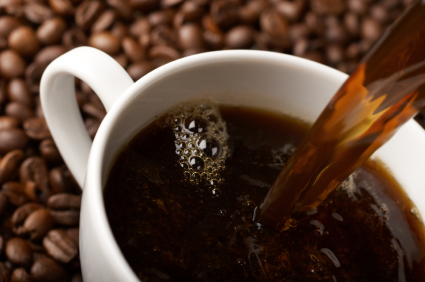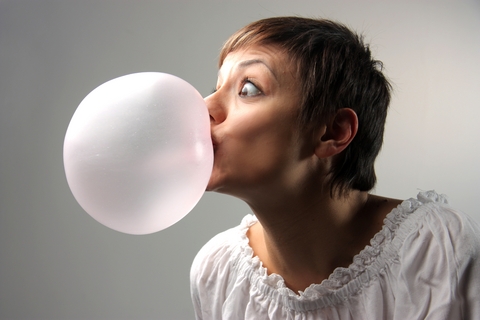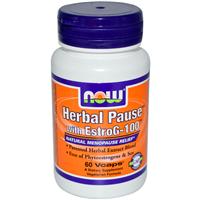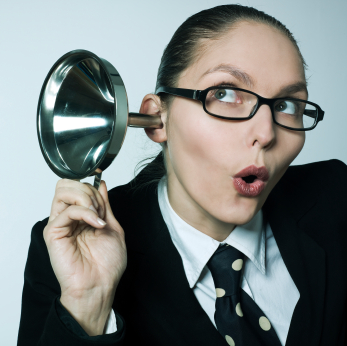Wednesday Bubble: chase the midlife blues away with a cup of java?
Coffee. The morning elixir that oh, so many of us rely on. Did you know that caffeine is the world’s most frequently ingested psychoactive substance?!
We’ve heard a lot about the blues and depression during midlife and menopause, with some experts saying that the two are connected and others, that they are not. However, regardless of whether or not menopause increases the risk for depression, it is clear that depression affects twice as many women as men, and at least 20% of all US women at some point during their lifetime. Hence, if there is an easy way to boost the success of antidepressants or behavioral or other strategies, I’m all for it. And it appears that coffee may be the part of the solution.
Coffee? Really?
In a newly published study in the esteemed Archives of Internal Medicine, researchers say that they followed over 50,000 women and examined their food intake including how often they drank caffeinated and decaffeinated coffee, tea and soft drinks and and ate chocolate. During the 10 years of the study, researchers identified slightly over 2,000 cases of depression. However, it appeared that drinking two to three cups of coffee daily reduced the risk of developing depression by 15% compared to drinking one cup a day or less. Women who drank four or more cups a day had a decreased risk of 20%. And decaffeinated beverages? No dice.
In so far as this study goes, it’s not conclusive and it could be possible that mildly depressed women drink less coffee. And keep in mind that too much of a good thing is well, too much. Studies have shown that long-term consumption of caffeine can lead to tolerance, meaning that you need greater amounts to achieve the effects that many of us crave. Nevertheless, so far, the results show that coffee may very well be mildly protective against depression.
English playwright and theatre director John Van Druten once said, “I think if I were a woman I’d wear coffee as a perfume.” I think I’d rather just drink it than wear it!
Read MoreTalk health to me, baby…on ePatient Conference, Seduce Health and menopause
When was the last time talking health was considered sexy? Or creative? Or passionate? Well, if you are a long time reader of Flashfree, you know that I don’t mince words and I don’t attempt to turn menopause or aging into a steamy soap opera (unless we’re talking steamy as in night sweats and hot flashes). However, I do try to approach the ‘what you need to know’ with humor, integrity and candor and stay away from fear mongering. That’s why I was excited to meet a lot of people last week who not only shared my passion for healthcare but more importantly, for conversing about it.
If you have not heard of ePatient Conference, you may want to check it out next year. It’s two solid days of engagement, exchange and networking. But if you take away the buzzwords, you are left with an opportunity to put creativity back into the way that healthcare is approached, managed and talked about.
Among the many incredible experiences — from hearing Seth Godin’s keynote to witnessing the VGo Robot take photos of the audience — none were quite as inspiring as meeting Google’s Chief Health Strategist, Roni Zeiger. And while Roni is undoubtedly doing some very cool things with Search and Trends over at the Google Headquarters, I was most impressed when he started telling me about Seduce Health. Along with co-founder Alexandra Drane, Roni started the site “to get a public conversation started about how we can reframe how we ask people to change their behavior, to live healthier and therefore happier lives. To move from fear and lecturing to passion and dreams, hope and beauty.”
It’s not a bad goal. But is it achievable?
It’s fairly clear that health messaging often falls on deaf ears and that sometimes, the individuals, experts and organizations leading the charge are the ones who are also misleading the very public they seek to educate. Take overweight and obesity for example, problems affecting an estimated two out of three American adults and at least 17% of all children. Obesity is the elephant in the room, acknowledged but rarely discussed without fear or lecturing, under- or misestimated and frequently inadequately addressed. Menopause is also a good example, a natural transition in a woman’s life that has been turned into the disease of the 21st century, medicalized by many health practitioners, manufacturers and the media, and mongered to the point where we have a burgeoning Menopause Industrial Complex based on greed, profit, fear and self-loathing rather than empathy and education.
When it comes to women’s health, I do believe that can be sensuous and passionate, not dry and stale. Along these lines, I recently wrote that:
taking control doesn’t have to mean that the aging process is denied, stopped or obliterated, medicalized or industrialized. Rather, it means taking charge to feel better, more vibrant, healthier so that you/we/I can live the best life I can live while we are alive. For me personally, that doesn’t mean hormone replacement or botox or lipo; it means trying to make more healthier decisions, control or address my symptoms with evidence-based alternatives and accept the transition as a natural part of my journey. I consider this time an opportunity for shifting priorities and interests that open all sorts of possibilities. And, I want to take the experience out of the closet and foster discussion and sharing. Ultimately, I’d like the see a more natural course driven by women themselves, as opposed to societal expectations and stigmatization of the aging process and as opposed to the Menopause Industrial Complex.
I’ve said it before and I’ll say it again. Let’s crowdsource menopause. Let’s make it a goal to seduce our peers and practitioners into talking about it, embracing it and not trying to change it into something its not: a four letter word. Aging can be a hopeful, positive experience.
What do you say? You in?
p.s. If you are curious about ePatient Conference, organizer Keven Kruse has graciously posted presenter slides here.
Read MoreMenopause: the symptom? Or, the disease?
A few years ago, I ran across the following story on the BBC:
“Woman’s Death Blamed on Menopause.”
“A woman who refused to take hormone replacement therapy died while suffering a menopausal episode, an inquest had heard. Margaret Drew…was killed when she walked out of her family home on to a nearby railway line and was hit by a train…There is no trigger to this at all, except hormones making her do things that she normally wouldn’t do, Dr. Carlyon [Cornwall Coroner) concluded…”
Menopause. The silent killer. Oh really? Drew’s husband claims that his wife was “delightful, lovely and friendly” 99% of the time; the other 1% she’d become “totally irrational.” Yet, she refused to try HRT, he says. On the day of her suicide, he said that his wife was “clearly angry about something.”
Something.
Obviously, the conclusion is that that the “something” is hormones. This reminds me of vintage advertising copy that conveys the simple message that a pill a day can cure all that ails, wipe away the tears, mood swings and instability so that women can “transition without tears” (or better yet, without killing themselves).
Notably, a search in the National Library of Medicine’s PubMed database turned up only one recent study specifically dealing with suicide ideation across reproductive stages. In it, researchers compared data in 8,794 women, and found an increased risk of thinking about suicide among women during perimenopause, not before or after entering menopause. These findings remained after controlling for risk factors such as anxiety and mood disorders. HOWEVER, the researchers noted that the study design did not allow them to form any definitive conclusions about the specific reasons for thinking about suicide.
Another search yielded information that the risk for a major depression increases during perimenopause, primarily as the direct result of vasomotor symptoms. The same does not hold true for women before menopause begins or once they enter menopause. Note that while major depression is a risk factor for suicide, not everyone who is depressed will actually kill themselves.
So, are hormonal fluctuations the sole cause of such deep unhappiness that women want to kill themselves?
Interestingly, just a week after the menopause/train suicide story hit the interwebz, a rather controversial set of data also emerged: since 1972, women’s overall level of happiness has dropped. These findings held true regardless of child status, marital status and age. Researcher Marcus Buckingham, writing in the Huffington Post, said that women are not more unhappy than men because of gender stereotyping and related attitudes, due to working longer hours or because of the inequality of housework/responsibilities at home, but rather, the hormonal fluctuations of menopause may be to blame. What’s more, he leaves us hanging so we’ll tune in for part two of the piece to learn the true cause of our declining happiness or better yet, read his book (which evidently guides women through the process of finding the true role that they were meant to play in life).
Importantly, reactions to this study (and various pundits’ assessment of it) have been mixed. One of the most poignant comments I’ve read asks the question “how is happiness measured? What does it mean?”
I have no idea what caused Mrs. Drew to walk into a train and kill herself. Perhaps she was depressed. Clearly she was suicidal.
I have no idea why research shows that women are less happier than they were three decades ago.
However, is menopause the cause? Aren’t these conclusions an example of how the Menopause Industrial Complex perpetuates societal myths that menopause is a disease that requires treatment? That as women, our attitudes, belief systems and actions are hormonally-based and driven? That we are hysterical beings who need guidance on how to find our way and fulfill our dreams, realize our paths, but only if we calm down?
Feeling angry? Blame it on menopause. Unhappy? Blame it on menopause. Not realizing your dreams? Blame it on menopause. Overworked, overstressed, undervalued? Blame it on menopause.
Blame it on menopause.
I don’t know about you but I’m tired, tired of hearing that menopause is not the symptom but the disease. Isn’t it time we start fighting back?
Read MoreWednesday Bubble: More on maca – not ready for prime time
Remember maca? The aphrodisiac of the Andean plains that is even used in fjords of Norway? When it comes to menopausal symptoms and female hormonal balance, it seems that maca is not all it’s cracked up to be. In fact, before you spend your hard earned dollars on this Andean wonderherb, you may want to hear more.
In case you are unfamiliar with maca, it is a plant indigenous to South American countries that has been used for centuries by Peruvians and other cultures to manage conditions such as anemia, infertility and as mentioned, hormonal imbalances in women. More recently, it’s been introduced in Europe, the US and Asia as a potential treatment for impaired sexual function and desire.
However, despite its touted benefits and burgeoning marketing buzz, maca may not be “all that.”
In the scientific world, researchers often look at published studies and data in composite in order to evaluate the effectiveness or worthiness, if you will, of a product or strategy. These efforts are call meta-analysis, and consist of culling, pooling and then evaluating information that was collected over certain time periods. Importantly, when they tried to do this with maca, searching 17 international databases for studies up to June of this year, they discovered the evidence was lacking, forcing them to synthesize or qualitate what they were able to find based on the strength of the evidence that did exist. In summary:
- Out of 17 scientifically rigorous studies that they were able to locate, only four held up to standards and therefore, worthy of inclusion.
- In total, 202 healthy pre- or post-menopausal women took pre-gelatinized or dried commercial maca or placebo, in different doses (1.0 to 3.5 gram daily) for up to 2 months.
- Various menopausal symptoms were studied using scientific indices. They ranged from vasomotor and mental health to sexual dysfunction and overall wellbeing.
Although three of the four studies showed that maca had positive and even significant effects on menopausal symptoms compared to placebo, the researchers emphasize that “perhaps the most important finding of this systematic review is that there have been very few rigorous trials examining the effects of maca on menopausal symptoms.” Given that maca has been marketed as effective for the treatment of menopausal symptoms, they find the lack of data surprising. Moreover, the studies were so disparate in terms of how maca was used that it’s difficult to draw any worthwhile conclusion about its effectiveness. In fact, the optimum amount of maca is still not known.
Tell me, how can you treat your symptoms effectively if you don’t know what dose to use?
Experts also don’t know how maca works; theories include that it may stimulate the production of estrogen or that it fortifies the body’s ability to maintain hormonal balance. Nevertheless, others argue that despite the clear evidence, maca appears to cause fewer side effects than conventional drugs for menopause. In fact, none of the studies examined in the review showed any adverse events (some claim that there are no reports of adverse effects whatsoever, although Peruvian authorities recommend that it is boiled before consumption to insure safety, and Australian authorities report attention disturbances, weight loss, agitation, nausea, vomiting, abnormal liver function, abdominal pain and oral tissue bleeding). The reason it’s so important to clarify this particular safety profile is that if maca has an estrogen effect, it might be contraindicated in women with conditions that are sensitive to estrogen, such as endometriosis and breast cancer.
The bottom line is that we need more scientific studies and a heck of a lot more information. Meanwhile, although it’s definitely affordable (a quick Google search shows that pricing per bottle or in bulk ranges from $4 to $23), there doesn’t seem to be enough evidence to support regular use of maca for menopausal symptoms and sexual function. This is definitely a path wrought with lots of questions. Buyer beware. Maca isn’t ready for prime time, at least not yet.
Read More
Botanically speaking…EstroG-100
Got botanicals? You might want to get this one. Although the traditional Japanese medicine Kampo supplement TU-025 doesn’t appear to offer much hope in the hot flash department, a well-known botanical supplement widely used in Korea, EstroG-100, may. In fact, it appears that the proprietary blend of Korean herbs in EstroG-100, including Cynanchum wilfordii, Phlomis ubrosa and Angelica gigas are not only safe but help in a number of menopausal symptoms in addition to hot flashes.
So, what’s the lowdown on EstroG-100? Basically, the supplement has been studied in Asian women and we know from other alternative strategies that effectiveness among different ethnicities don’t always translate. Hence, I was pretty interested to learn that researchers decided to see if EstroG-100 would work on menopausal symptoms in a small group of white- and non-White Hispanics and African American women who were pre-, peri or menopausal. Over a three month time period, women either took 2 EstroG-1oo tablets or placebo twice daily and then using a scientific index, self-reported and rated symptoms, including:
- hot flashes
- cold swewats
- numbness, tingling
- insomnia
- nervousness, depression or feeling blue
- dizziness
- fatigue
- muscle and joint pain
- headache
- pounding heart
The study results suggest that EstroG-100 is not only safe, but it has a significant impact on a few very troublesome symptoms, namely hot flashes and sweats, insomnia, nervousness, feeling blue, dizziness and fatigue. Overall, menopausal symptom scores declined by more than half in women using EstroG-100 compared to women taking placebo. Moreover, initial, favorable changes were seen as early as 6 weeks. Estro-G also appeared to have a beneficial effect on the severity of vaginal dryness, a condition that plagues many menopausal women as estrogen levels decline. Even better were findings that EstroG-100 does not have any sort of estrogenic effect, indicating that it may potentially be safely used in women at risk for gynecological cancers. And, use of EstroG-100 does not appear to affect weight, body mass index or liver enzymes, all of which are affected by hormone replacement.
Less clear is how EstroG-100 will work in non-Hispanic white women and that study, along with studies in larger numbers of women may determine it’s overall benefit in menopause. Meanwhile, I’m pretty encouraged. This study addresses a lot of complaints about studies of alternatives; it is well designed, randomized, looks closely at adverse events and includes a variety of ethnic groups and menopausal status. Stay tuned for more on EstroG-100. This botanical may be here to stay!
Read More
The better to hear you…
What did you say?!
Did you know that menopause may be a trigger for age-related hearing loss?! Although men start losing the ability to hear high-frequency noise as early as age 30, a similar loss apparently does not become apparent in women until after age 50. This may be due to a protective effect played by female sex hormones, which would mean that as circulating estrogen starts to decline, it sets off a series of actions that trigger age-related hearing loss.
To test this theory, researchers conducted hearing tests (pure tone audiometry, which measures the ability to hear different thresholds) in 104 women who had been in menopause at least one year and were, on average, 51 years old. Hearing tests were repeated a second time roughly seven and a half years later. As a whole, the group of women was neither death or severely hearing impaired and the majority were not using hormones of any kind for their symptoms.
Interestingly, a vast majority of the women had accurate hearing when the study started. And yet, by the second hearing test, hearing decline relating to mid to high frequencies was very apparent, especially among women who were well into menopause (by about five to seven years). On average, these women were losing 1.1 to 1.5 decibals yearly. And even more interesting was the fact that depending on how long women had been in menopause, the hearing loss tending to favor one ear over another; women in menopause four years or less had greater decline in their left ear while their peers who had been in menopause five to seven years had greater decline in their right. This loss balanced out between ears by eight to 13 years into menopause and even appeared to slow.
The researchers say that estrogen appears to protect inner ear function and maintains what they refer to as ‘auditory integrity.’ However, once women enter menopause, there is a rapid, initial decrease in the ability to hear mid to high frequencies, first in the left ear and then in the right.
There is not too much a person can do about age-related hearing loss except for limit exposure to loud noise and keep your heart healthy so that blood flow to the ears is not constricted. However, unfortunately, most of us in our early 50s spent a lot of times in our formative years attending concerts, where noise level was the norm, not the exception. Consequently, we may already have a higher risk for hearing loss than our parents, but still a lower risk than our children, who by default, are constantly exposed to loud environments and noise from electronic devices. Add the estrogen factor and well, it’s sort of a losing proposition. Still, it’s helpful to know it’s not all in our heads or in our ears. Or better yet, entirely due to rock n roll.
Read More











